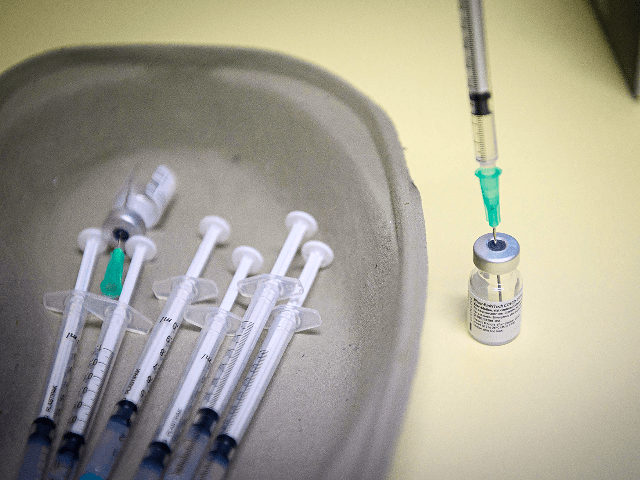South Korea’s Disease Control and Prevention Agency on Monday issued a recommendation against the use of the AstraZeneca coronavirus vaccine by people over the age of 65.
The agency said there was insufficient data on the effectiveness and safety of the vaccine for the older age group.
The recommendation marked a major shift in policy for South Korea, which is scheduled to receive enough vaccines for 750,000 people in the last week of February. The original plan was to prioritize inoculations for people over 65, since they are the demographic most vulnerable to severe illness and death from the Chinese coronavirus, but on Monday the Korea Herald reported the first doses will go to nursing home residents and staffers under the age of 65.
Soon after the AstraZeneca shipment arrives, South Korea is due to receive enough Pfizer vaccine for 58,500 people, delivered through the World Health Organization’s COVAX initiative. The Pfizer injections are earmarked for front-line health care workers.
Jung Eun-kyeong, chief of the Korea Disease Control and Prevention Agency (KDCA) and head of its coronavirus immunization committee, said:
Priority should be given to older people, as they are at higher risk of severe COVID-19 [Chinese coronavirus], and it is regrettable that they won’t be offered the first doses and the plan has to be tweaked. But we’ve decided that until more data becomes available on the effects of the vaccine in older people, it is best to withhold its use.
Health experts said the use of the AstraZeneca vaccine has not been ruled out for older South Koreans, merely postponed until more data is available. Results from a U.S. trial that might provide the necessary information are due in late March, and more data from the U.K. and Europe is anticipated as well.
“Several European countries are ruling out administering the AstraZeneca vaccine to older people on account of limited data. But these are the countries that have the option of using other vaccines for the older group — they can afford to get choosy. It’s not the same for us,” Dr. Kim Woo-joo of Korea University told the Korea Herald, expressing some skepticism about the decision to hold off on giving the AstraZeneca shots to elderly patients.
Dr. Paik Soon-young of Catholic University of Korea agreed with the assessment:
I don’t reckon there are that many nursing home residents who are under the age of 65. The point of vaccinating the older people first was to reduce hospitalizations and deaths. Vaccines from other manufacturers won’t be available until much later. Korea might fall behind other countries by not being able to deploy the AstraZeneca vaccine per the plan set out in January as seeing that there’s no plan B.
Paik also worried that the Korean government could be needlessly undermining public confidence in the AstraZeneca vaccine, which has been positively reviewed by numerous regulatory agencies in both South Korea and Western nations.
Reuters noted that the decision to limit distribution of the AstraZeneca vaccine, coupled with delayed shipments from the COVAX initiative, will oblige South Korea to scale back its ambitious vaccination timetable. However, KDCA insisted the country would still be on track to reach “herd immunity by November.”
The relatively inexpensive AstraZeneca vaccine is the major resource for COVAX, which is primarily intended to get vaccines to low-income nations, more quickly than local regulatory bodies might otherwise allow. The World Health Organization officially approved the AstraZeneca product for emergency use on Monday, despite concerns that it could be significantly less effective against the Chinese coronavirus strain spreading through South Africa.

COMMENTS
Please let us know if you're having issues with commenting.